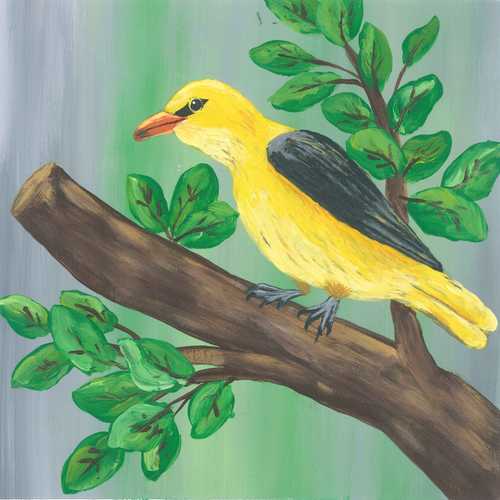
Hej*, friend. 🙋♂️
What are the origins of sound? Could human encroachment on the habitat of bats unleash future pandemics? Can a moribund river be revived?
Read on to find out.
Pus: do you take the dawn chorus for granted?
*A casual Polish greeting.
Soundscape of the week
‘Great Bittern Booming Accompanied by Amphibians’:
The Eurasian or great bittern, a wading bird, provides an uncanny chorus in this recording by Jakub Orzęcki: a ghostly rising-and-falling pulsation, which must have given many a marshland traveler a case of the heebie-jeebies over the years, all across the bird’s Palaearctic range. Watch an individual work itself up to its call here; this low booming call is created by the expulsion of air from the esophagus by powerful muscles.
Though in global decline, this is at least not occuring swiftly at present – though in the UK it is one of the most threatened species of bird. (Losing the bittern from the British Isles – which almost happened in 1997, when only 11 males remained – would additionally render obsolete such delightful colloquial names as “bog-trotter”, “bitter bum”, “boom bird”, and “heather blutter”.)
Articles and essays
🎶 ‘Everything You Need to Know about the Dawn Chorus’ provides a primer for a daily occurrence that it’s likely few of us make a concerted effort to listen to. The article outlines the reasons behind the chorus, answers the questions of why – and how – birds sing in the way that they do, and suggests a range of ways to support birds in our gardens and outdoor spaces.
It also spells out how catastrophically human behavior is impacting bird populations: in the UK alone, the amount of wild birds has declined by an incomprehensible 114 million since 1970, with industrialized agriculture largely to blame.
💧 “In the mangrove swamps by the Niger, fish climb trees and ogle uneasy naturalists […]; there are things still coming ashore…”
Wind Is the Original Radio, the earth.fm podcast, is pleased to share ‘Loren Eiseley on Water with Steven Shepard’, the first in a series of bonus episodes. These are “short and beautiful reflections about nature and sound and life and poetry” featuring friends of the site – in this case author, educator, speaker, writer, photographer, and producer of audio and video media, Dr Steven Shepard, who ruminates briefly on the role of water on Earth.
Full-length episodes of the podcast are available on Apple and Google podcasts, Spotify, and Stitcher, with installments featuring soundscape recordings released every Friday.

From the extended community
🌍 “How did the vast and varied chorus of modern sounds—from forest to oceans to human music—emerge from life’s community? When did the living Earth first start to sing?”
With ‘When the Earth Started to Sing’, an “eons-spanning exploration of sound and sensitivity”, Emergence Magazine invites listeners “on a journey into deep time and deep sound that will open your ears and your imagination”. This essay, written and narrated by author and biologist David George Haskell, takes us back 13 billion years to the origins of stars and galaxies for an exploration of the origins and nature of sound itself.
🦠 Reuters has released a series of info-graphical articles, ‘The Bat Lands’, the results of data analysis which show “how human incursions into the world’s bat lands are laying tracks for the next global health pandemic” and identify “where the next outbreaks are likeliest”.
Bats are ideal vectors of disease for several reasons: as the only flying mammals, they can disperse viruses with particular efficacy; “they roost in large numbers, thus aiding transmission cycles; some […] hibernate over winter, […] [allowing] viruses to persist between seasons; and genetic factors may play a role in the[ir] ability […] to host viruses without resulting in clinical disease”. The viruses bats can harbor – which include rabies and Japanese encephalitis – don’t harm their hosts; “they harm the people who encroach on their habitats”.
The articles in the series focus on West Africa, India, Laos, and Brazil, highlighting areas where zoonotic diseases could jump from bats to humans due to our “hunger for resources[, which] is driving worldwide destruction of areas rich with bats”, while also offering solutions which would allow more effective “monitoring and respon[ses] to deadly outbreaks” in future.
🏞 Reports of the ‘death’ of Ontario’s River Don appear to have been grossly exaggerated. “In 1969, […] [charitable environmental organization] Pollution Probe’s founders held a widely publicized mock funeral for the Don”; now, the UK Guardian reports on ‘How Toronto’s Don River, Once Declared Dead, Is Roaring Back to Life’: “For most [of] Toronto’s urban history, it was a dumping ground […]. Tanneries, distilleries and abattoirs discharged effluent into the river and dead livestock could be found drifting in the murky water”, raw sewage was pumped into it, and once or twice it even caught fire (!).
Yet its funeral now seems to have been pre-emptive: the citizen-led Task Force to Bring Back the Don has “restored wetlands, cleaned its banks, and reduced the city’s use of road salt”, while Toronto has “invested more than C$1bn to create wetlands, levees and a new route for the Don”, with a further C$3bn being spent on the construction of tunnels to divert untreated sewage.
During the addition of three hectares of new coastal wetland and four hectares of habitat on post-industrial wasteland, “beaver, mink, bald eagles, deer and coyote have been spotted in the area” – all of which constitutes a valuable reminder of the triumphs which can be achieved through “sustained grassroots effort”.
👉 Follow us on Twitter for a daily dose of nature-sound inspiration!
How to support earth.fm
All 600+ of our curated, immersive soundscapes are free to listen to, but if you want to help us grow new forests, please become a supporter!
There are three options available, and you will also be able to favorite recordings, create and share playlists, and many other perks – plus a big surprise is coming exclusively to members in the next few weeks!
Until next time, we wish you a regenerative week. 🙏
With best wishes,
Neil and Team earth.fm
Reach out on hello@earth.fm 👋
Forward this newsletter to anyone who would appreciate it ✉️
Join the conversation with the Earth.fm community 🤝
Submit a recording 🎤
Follow us on Twitter. Instagram and YouTube 💻
Listen to nature sounds in your browser by installing our free extension 🎧
Earth.fm is a completely free streaming service of 1000+ nature sounds from around the world, offering natural soundscapes and guided meditations for people who wish to listen to nature, relax, and become more connected. Launched in 2022, Earth.fm is a non-profit and a 1% for the Planet Environmental Partner.
Check out our recordings of nature ambience from sound recordists and artists spanning the globe, our thematic playlists of immersive soundscapes and our Wind Is the Original Radio podcast.
You can join the Earth.fm family by signing up for our newsletter of weekly inspiration for your precious ears, or become a member to enjoy the extra Earth.fm features and goodies and support us on our mission.
Subscription fees contribute to growing our library of authentic nature sounds, research into topics like noise pollution and the connection between nature and mental wellbeing, as well as funding grants that support emerging nature sound recordists from underprivileged communities.

